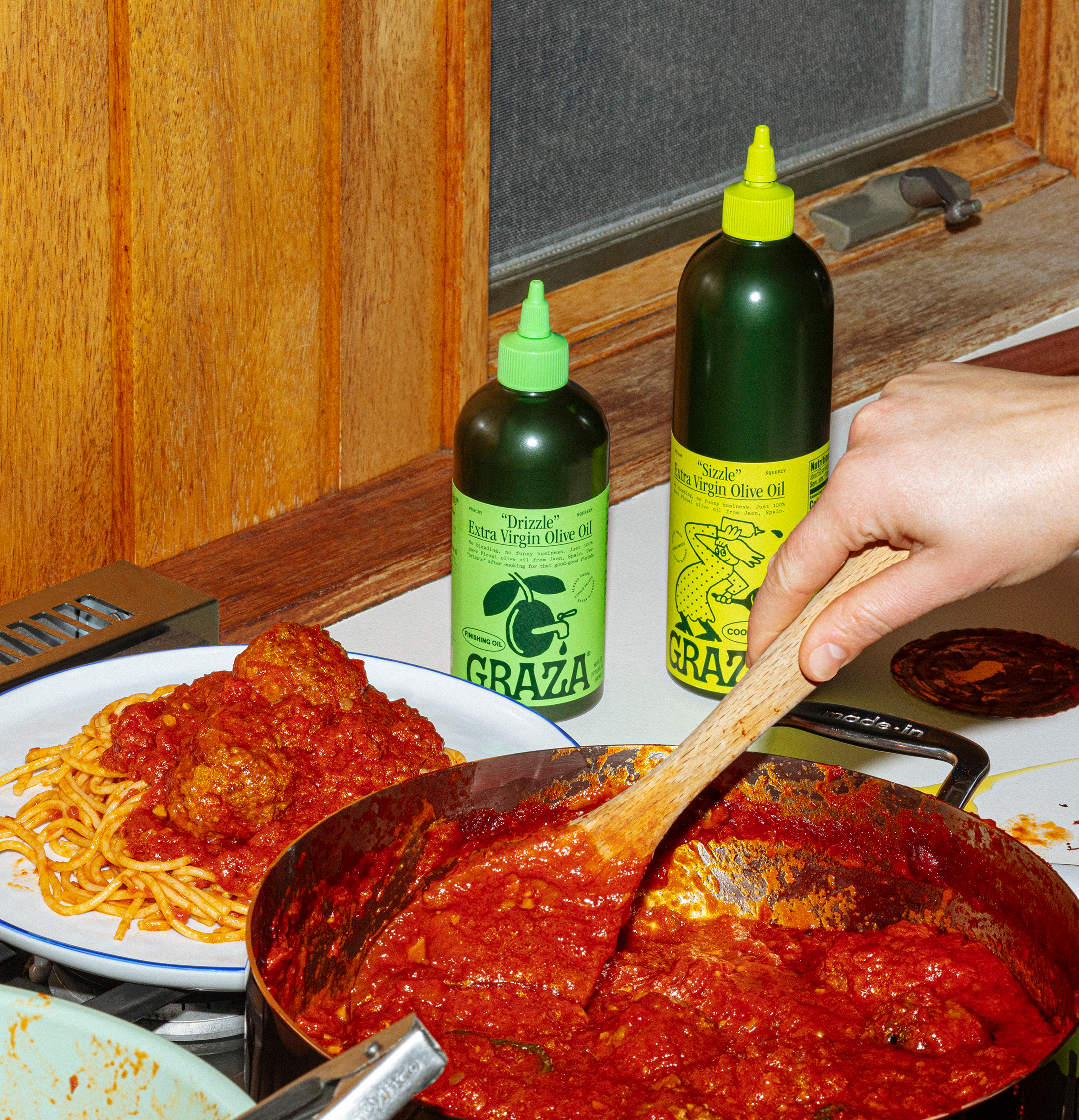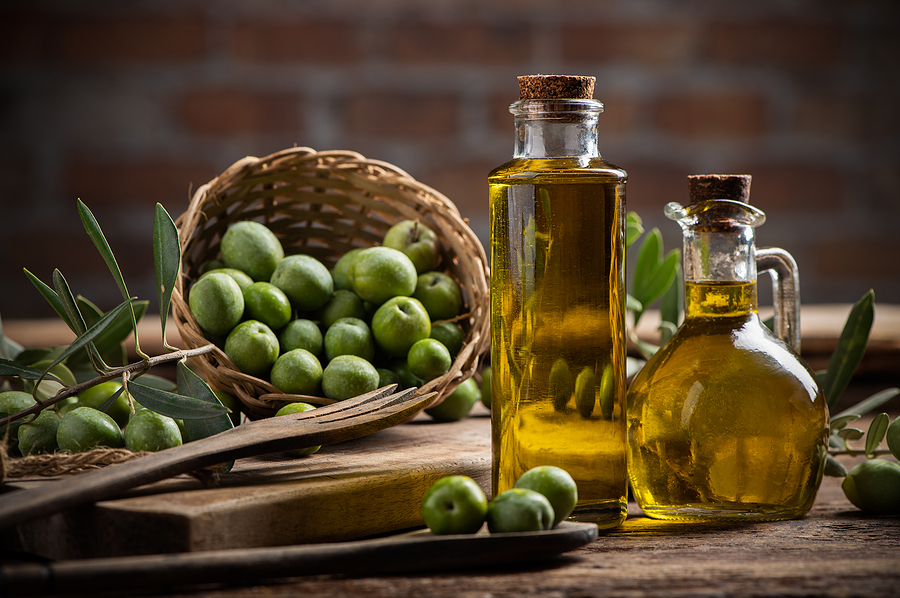Discovering the Different Types of Olive Oil and Their Uses, Consisting Of Additional Virgin Olive Oil
The exploration of olive oil encompasses a varied series of kinds, each offering cooking applications and unique flavors. Bonus virgin olive oil, renowned for its premium top quality and health and wellness benefits, functions as a staple in lots of kitchens, yet it is just one aspect of this multifaceted active ingredient. extra virgin olive oil benefits. Other selections, such as refined and pure olive oils, also warrant focus for their one-of-a-kind residential or commercial properties and usages. Comprehending these differences can substantially impact both food preparation techniques and taste profiles. What, then, should one take into consideration when choosing the appropriate olive oil for a certain cooking venture?
What Is Olive Oil?
Acquired from the fruit of the olive tree, olive oil is a staple in Mediterranean food and an essential component in numerous culinary applications. This versatile oil is created by pushing entire olives, resulting in a liquid that varies in scent, color, and taste depending upon the kind of olives made use of, the area of cultivation, and the extraction process. Olive oil is primarily made up of monounsaturated fats, specifically oleic acid, which is recognized for its possible wellness advantages, consisting of anti-inflammatory residential or commercial properties and cardiovascular support.
Along with its culinary uses, olive oil has a long history of application in conventional medicine and skincare, owing to its rich antioxidant content (extra virgin olive oil benefits). The oil is frequently used in dressings, marinades, and for cooking methods such as sautéing and roasting. Its distinct flavor account can boost the preference of numerous recipes, making it a crucial active ingredient for both home cooks and expert chefs
Furthermore, olive oil is celebrated for its duty in the Mediterranean diet regimen, which is linked with many health and wellness benefits. As awareness of these advantages expands, olive oil proceeds to gain appeal worldwide as a basic element of a healthy lifestyle.
Sorts Of Olive Oil
Comprehending the various kinds of olive oil is necessary for both health-conscious customers and culinary enthusiasts. Olive oil is identified mainly based upon its extraction approach and high quality, which significantly influences its health, scent, and taste benefits.

Light olive oil, despite its name, refers to a lighter taste and not reduced calories. It is optimal for those seeking a more refined preference in marinades and dressings. Additionally, there are flavorful olive oils infused with herbs, seasonings, or citrus, which can boost meals without the need for added spices.
Each type of olive oil offers certain culinary objectives, and recognizing these differences permits customers to make informed selections that line up with their cooking designs and health objectives.
Additional Virgin Olive Oil
Extra virgin olive oil (EVOO) is extensively considered the best quality olive oil available, popular for its rich taste and many navigate to this website health advantages. To be classified as additional virgin, the oil must be generated from fresh olives using mechanical procedures, without making use of solvents or extreme heat. This careful method protects the oil's all-natural tastes, anti-oxidants, and healthy and balanced fats, leading to a product with a low level of acidity level of much less than 0.8%.
EVOO is abundant in monounsaturated fats, specifically oleic acid, which is linked to minimized swelling and improved heart wellness. It also consists of polyphenols, effective antioxidants that may supply protective results against chronic conditions. The taste profile of EVOO can differ dramatically depending on the olive range and area of production, ranging from fruity and verdant to durable and peppery.

Culinary Utilizes of Olive Oil

In cooking, olive oil can be used for sautéing, toasting, and cooking, giving a much healthier choice to butter or various other fats. Its high smoke point dig this makes it appropriate for various cooking methods, while its antioxidants add to a heart-healthy diet regimen. Showering olive oil over completed meals, such as pasta, fish, or barbequed vegetables, can boost tastes and include a touch of beauty.
Furthermore, olive oil plays a significant duty in cooking, where it can replace traditional fats in dishes for bread and breads, giving moisture and a refined preference. It likewise acts as a base for instilled oils, enabling chefs to experiment with tastes such as garlic, herbs, or chili, even more expanding its cooking capacity. Overall, olive oil's convenience makes it vital in both home and expert kitchens.
Finding High Quality Olive Oil
When selecting top quality olive oil, it's important to consider numerous crucial aspects that influence the item's flavor, fragrance, and health and wellness benefits. Primarily, choose added virgin olive oil (EVOO), which is stemmed from the initial cold pushing of olives and contains the highest degree of antioxidants and valuable compounds. Seek oils that are certified by acknowledged companies, as this frequently makes sure adherence to stringent quality requirements.
The product packaging also plays a significant function in maintaining the oil's integrity. Choose oils kept in dark glass containers or tins to shield versus light degradation. Take note of the harvest date; fresher oils use premium flavor and nutritional value, so select products that are within 18 months of their harvest.
On top of that, take into consideration the origin of the oil. Top quality olive oils commonly originate from details areas recognized for their distinctive taste accounts, such as Italian, Spanish, or Greek oils. Be aware of the preference; an excellent top quality olive oil need to have an equilibrium of fruity, bitter, and sharp notes, suggesting its richness and complexity. By assessing these elements, you can ensure you are choosing the best olive oil for your cooking demands.
Final Thought
In summary, the expedition of various kinds of olive oil exposes unique characteristics and applications, with additional virgin olive oil representing the peak of quality due to its low level of visit the site acidity and high antioxidant material. Recognizing the different selections of olive oil enables for educated choices in food preparation methods, promoting much healthier practices while improving the overall gastronomic experience.
Obtained from the fruit of the olive tree, olive oil is a staple in Mediterranean food and an essential active ingredient in various culinary applications.The most usual kinds of olive oil include fine-tuned olive oil, pure olive oil, and light olive oil.Bonus virgin olive oil (EVOO) is widely related to as the highest quality olive oil offered, popular for its rich flavor and countless health benefits. Choose for added virgin olive oil (EVOO), which is acquired from the first chilly pushing of olives and has the highest levels of antioxidants and valuable compounds.In summary, the exploration of different types of olive oil exposes distinctive characteristics and applications, with extra virgin olive oil representing the pinnacle of high quality due to its low level of acidity and high antioxidant material.